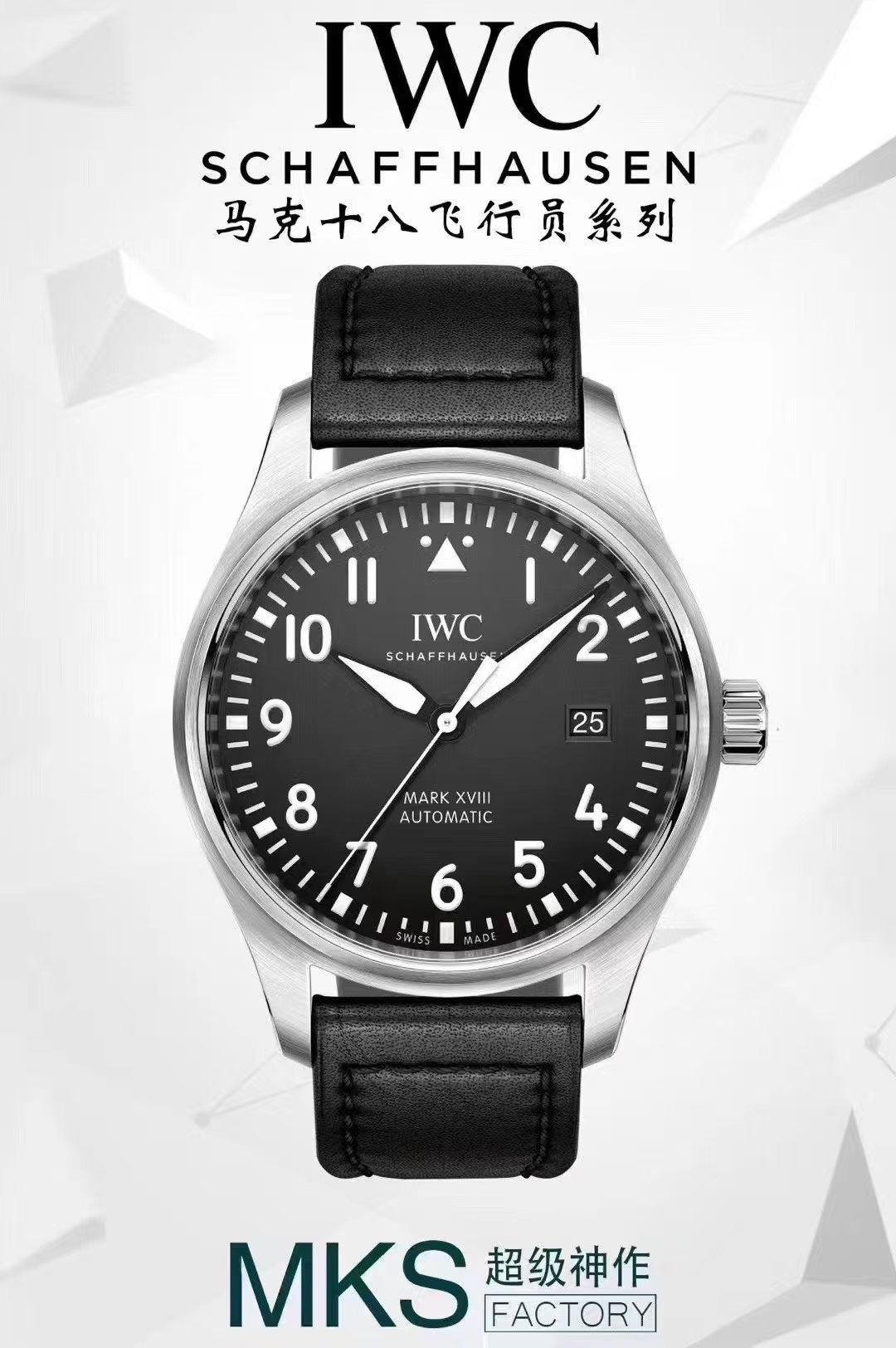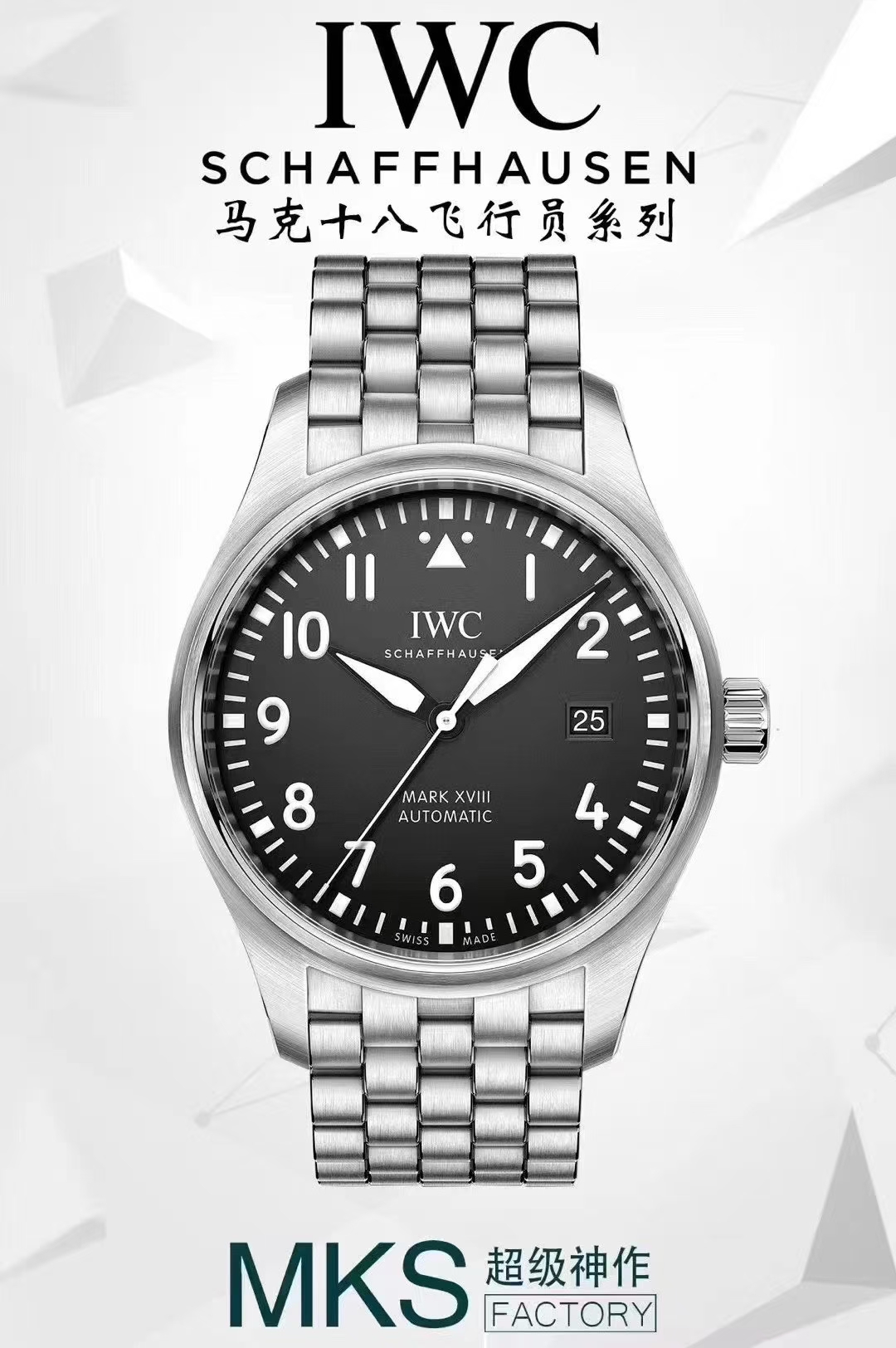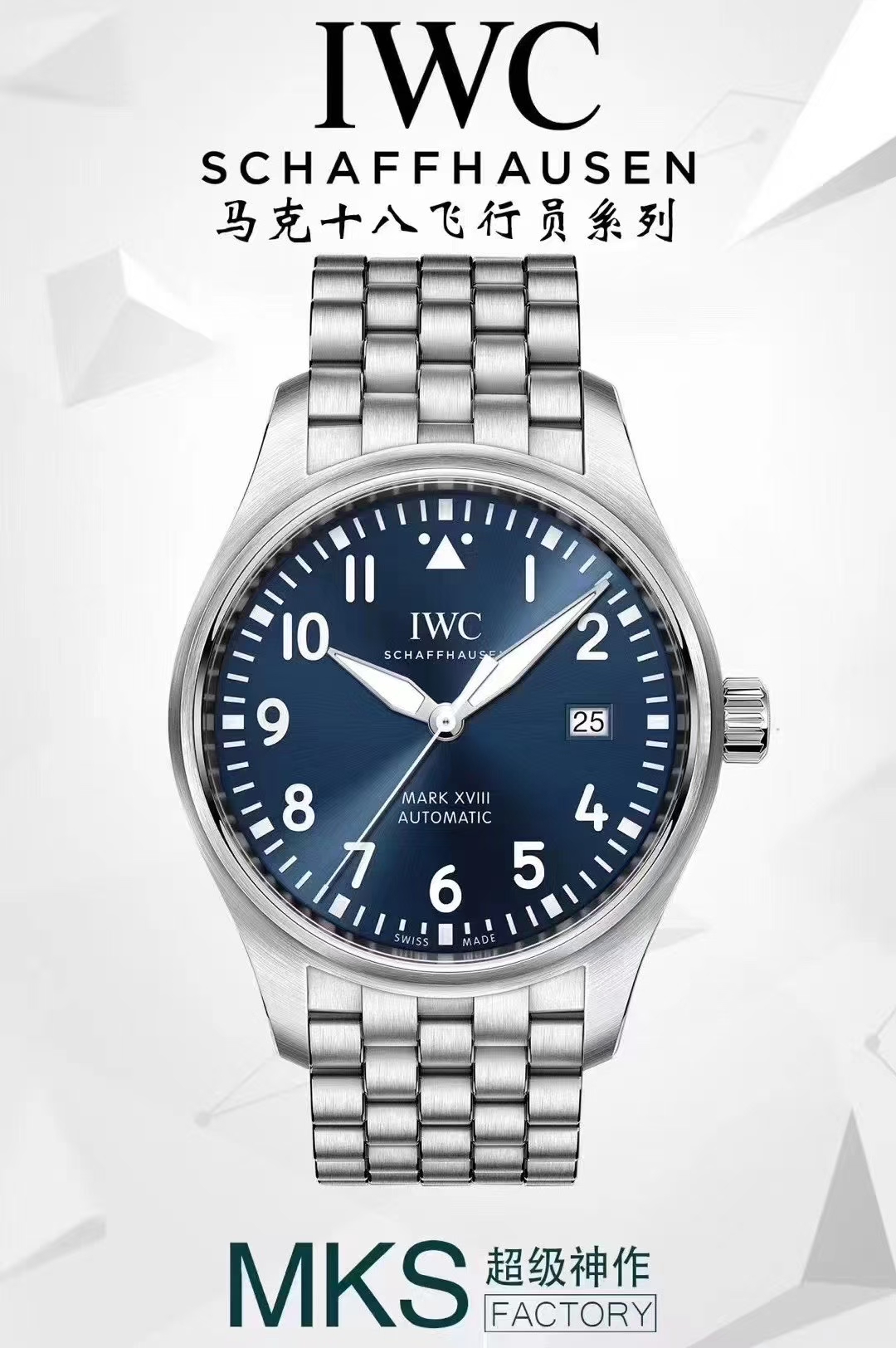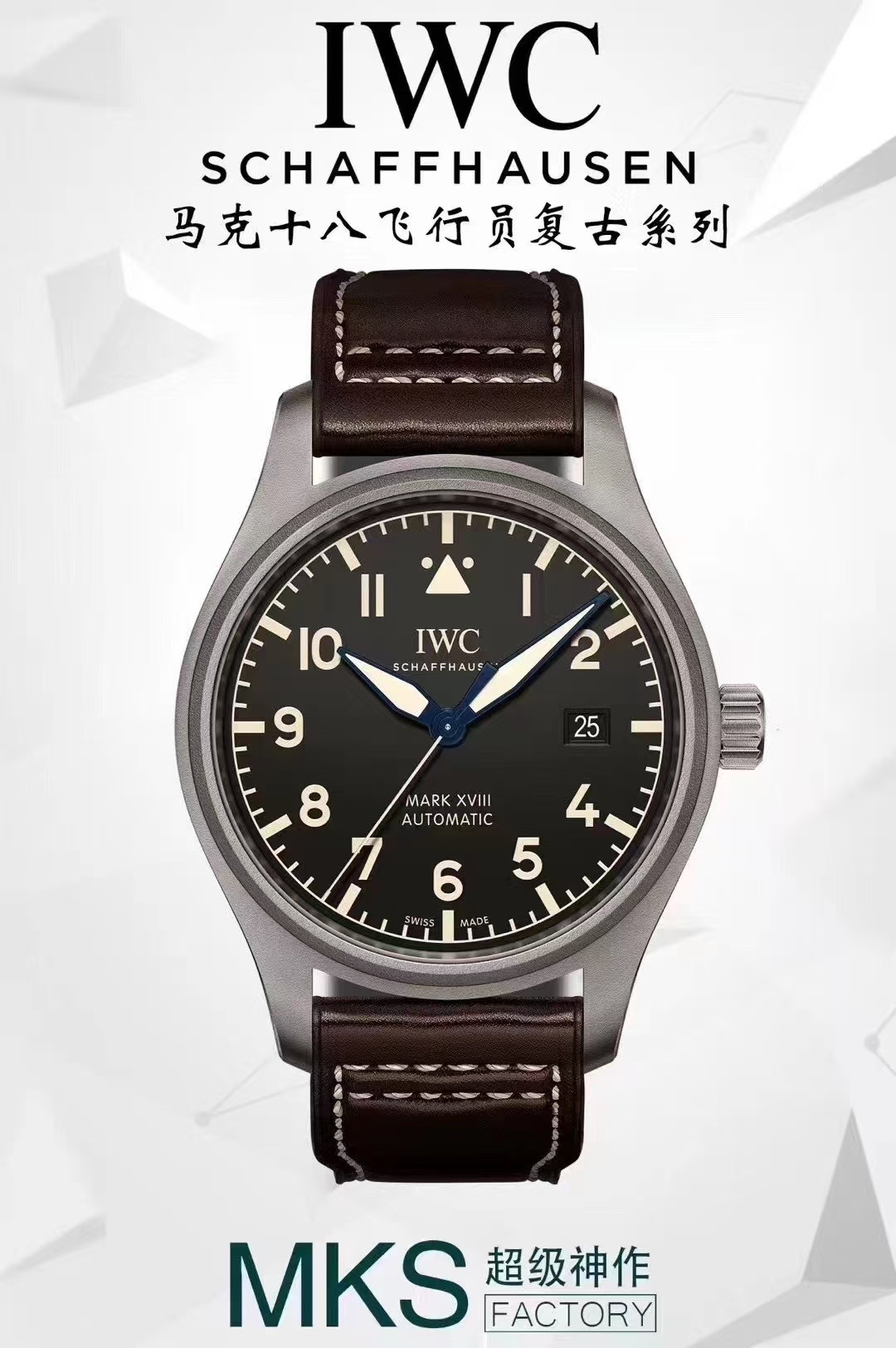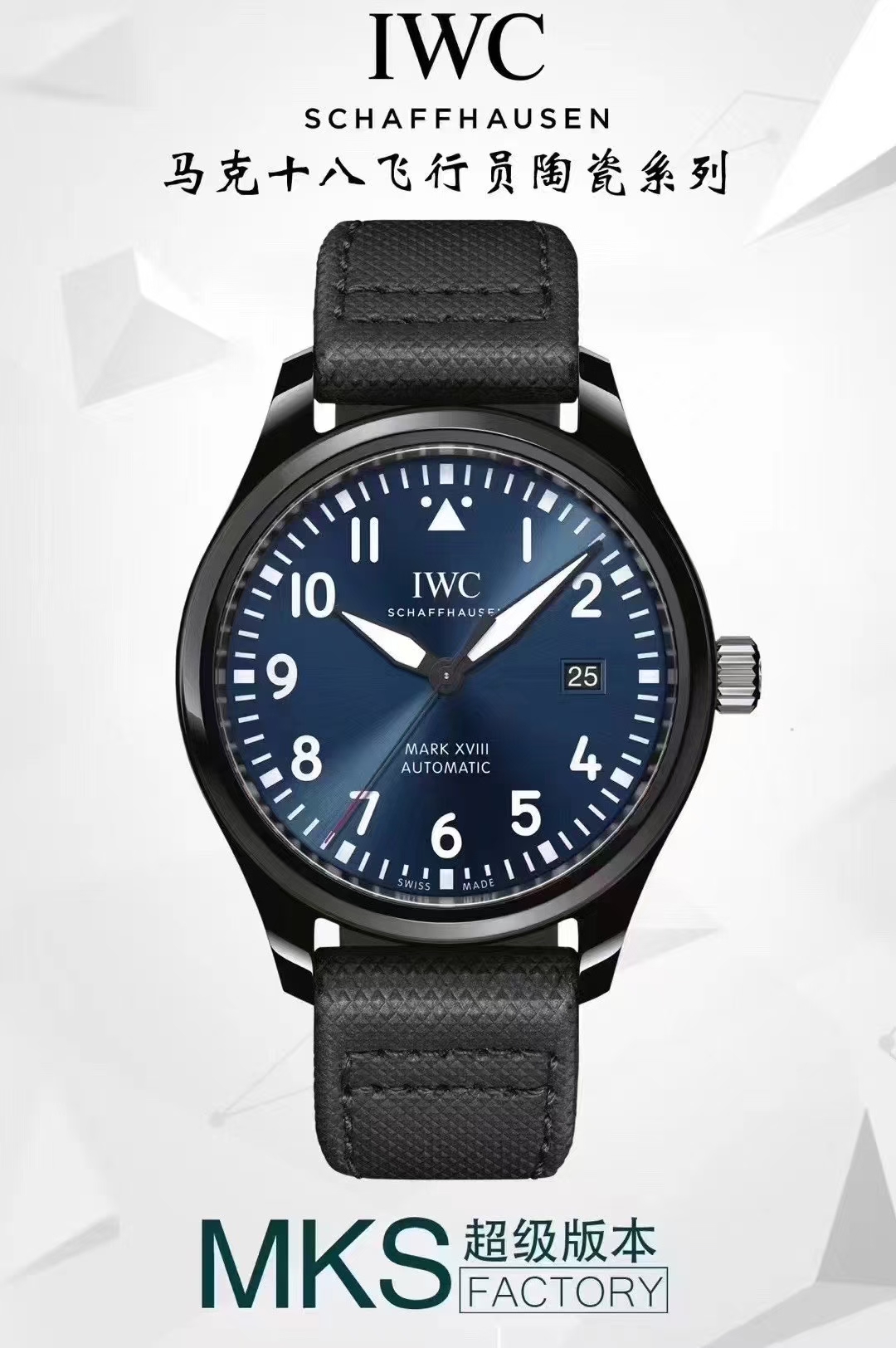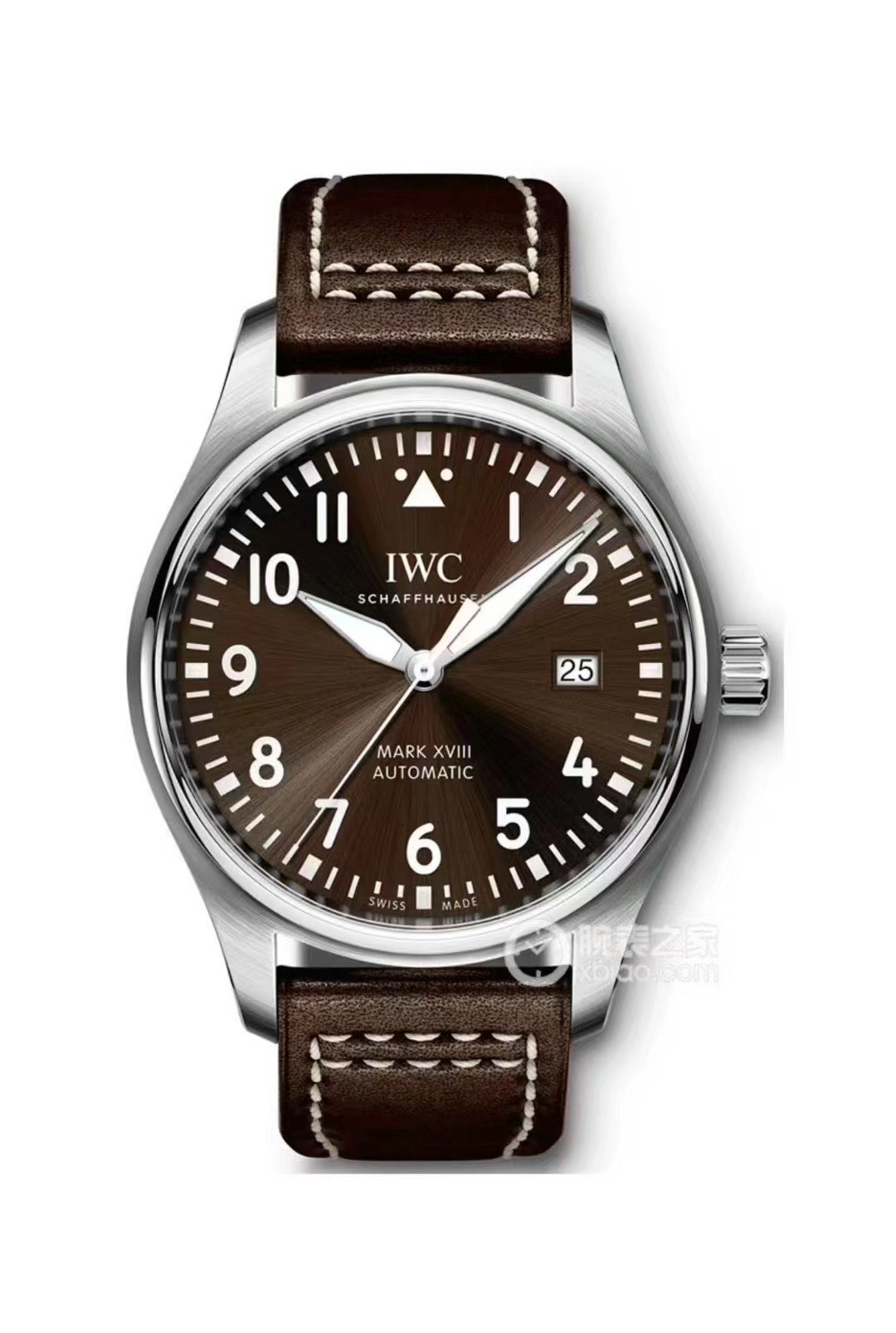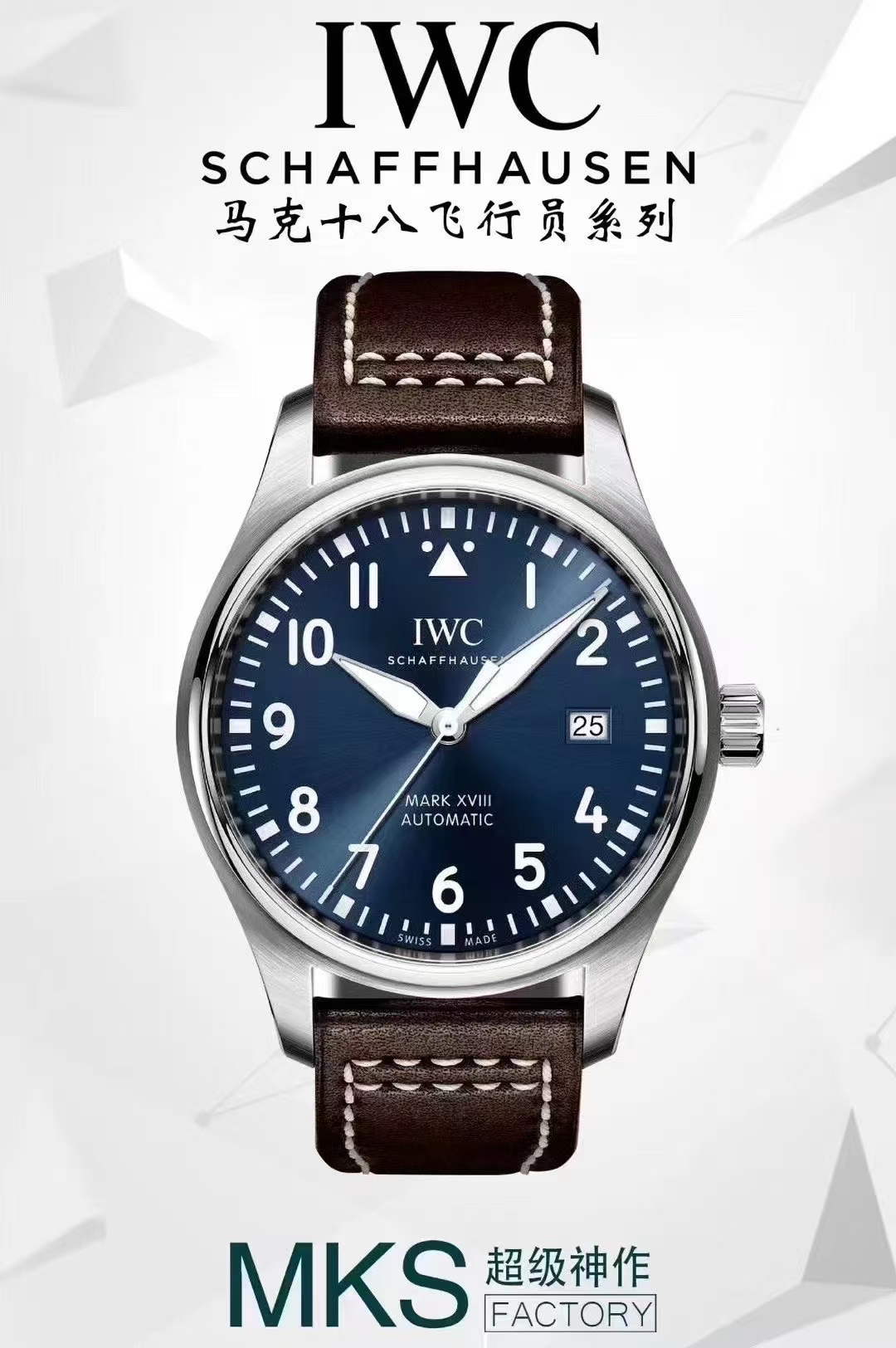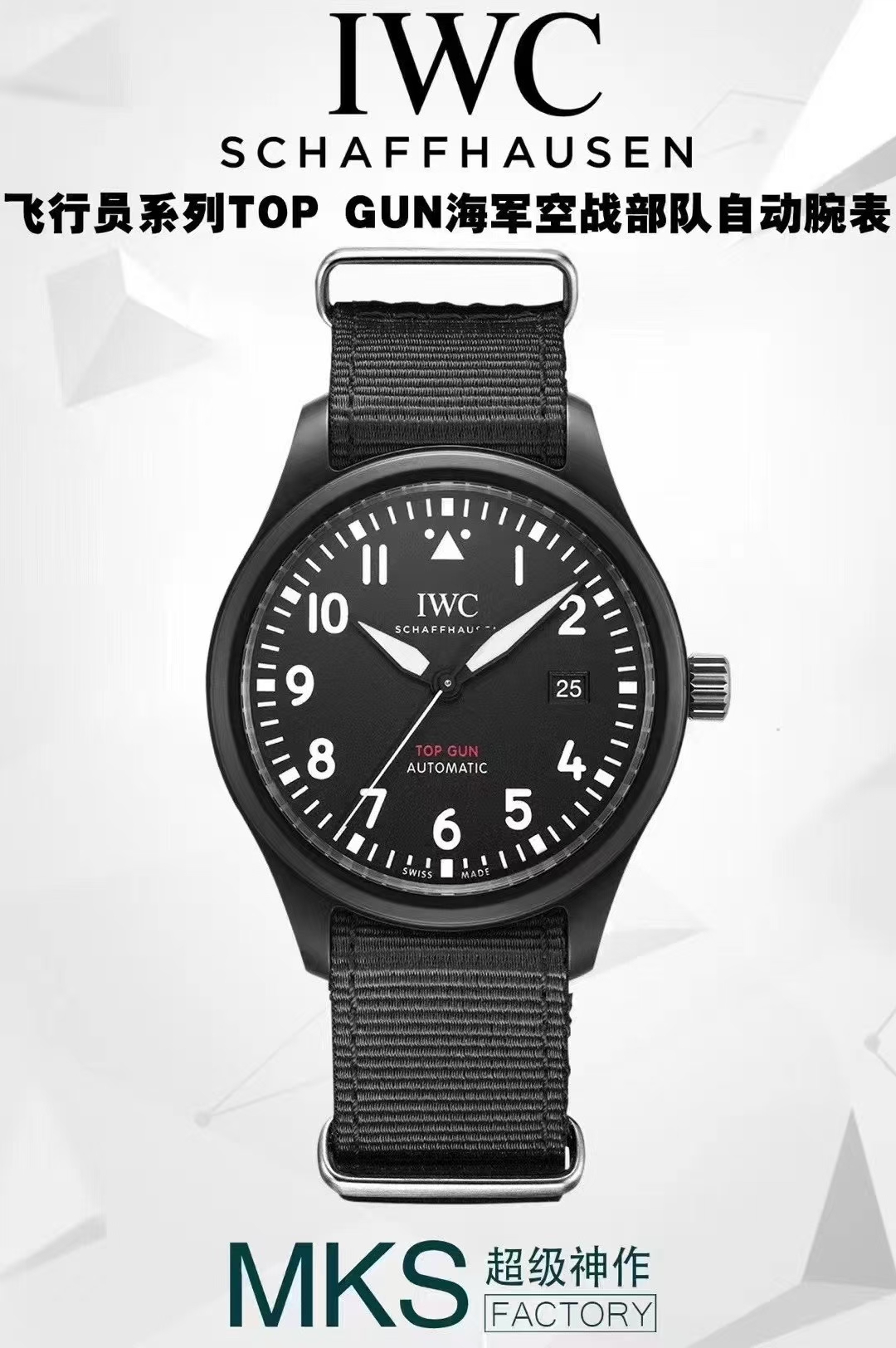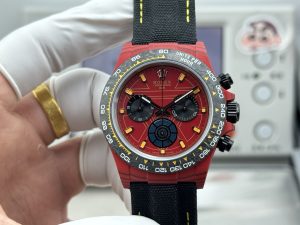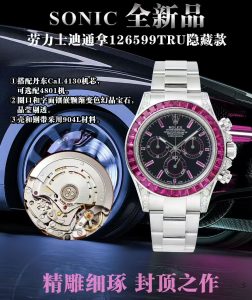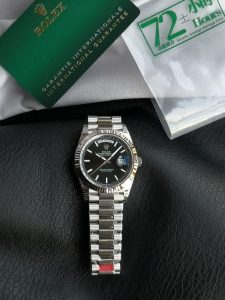The world of horology is often defined by a delicate balance between tradition and innovation. In this realm, the MKS Mark XVIII Ceramic series stands out as a compelling exemplar. Building upon the esteemed legacy of the IWC Mark XVIII, the MKS interpretation offers a fresh take, marrying exquisite design with cutting-edge technology. This article delves into the intricate details and broader implications of this series, offering insights from ethical, economic, and psychological perspectives.
Aesthetic Mastery and Technical Precision
The MKS Mark XVIII Ceramic measures 41mm by 11mm, maintaining a sleek profile that’s both modern and timeless. Each brushed or polished surface of the case showcases what can only be described as the pinnacle of domestic watchmaking expertise. The immaculate attention to detail in the polishing and finishing processes positions this model as a benchmark against which luxury watches are measured.
The rigorous quality control (QC) procedures at MKS ensure that every component meets the highest standards. This commitment to excellence is not only a testament to craftsmanship but also a strategic branding maneuver, positioning MKS as a paragon of quality in the replica watch market.
Innovation Meets Reliability
At the heart of the MKS Mark XVIII beats the Japanese Miyota 9015 movement—a choice that reflects both innovation and pragmatism. Renowned for its stability and precision, this movement embodies a practical approach to watchmaking where zero repair returns have been reported. This underscores a significant departure from the notions often associated with replica watches, offering a new narrative of reliability.
From an economic standpoint, the adoption of the Miyota 9015 challenges the luxury industry’s high-cost structure, presenting a competitive alternative that does not compromise on quality. The balance between cost-effectiveness and technical sophistication becomes a central theme in the discourse around this series.
The Ethics of Affordability in Luxury
The MKS Mark XVIII Ceramic raises pertinent ethical questions about the watch industry. By offering a product that replicates high-end aesthetics with comparable functionality at a fraction of the cost, it forces a reconsideration of what luxury means. Is the value of a watch derived from its brand name or from the technical and aesthetic prowess it embodies?
This approach democratizes luxury, making high-quality timepieces accessible to a broader audience. While critics may argue that replica watches dilute brand exclusivity, one could contend that these watches empower consumers to reject inflated brand premiums, thus challenging the traditional luxury narrative.
Psychological Dimensions of Brand and Status
Luxury watches often symbolize status, serving as markers of success and personal taste. The availability of high-fidelity replicas like the MKS Mark XVIII Ceramic taps into the psychology of desire and identity. It questions the intrinsic value attributed to brand prestige and explores whether the satisfaction derived from owning a luxury watch is linked to its internal workings or external perception.
For many, owning such a replica provides a sense of accomplishment and inclusion within the esteemed circles of luxury watch enthusiasts without the financial burden. It invites a broader conversation about the role of material possessions in shaping personal identity and self-worth.
Conclusion: Rethinking Luxury
The MKS Mark XVIII Ceramic series is more than just a timepiece; it is part of a larger narrative that questions the very foundations of the luxury watch industry. By providing a meticulously crafted, economically viable, and ethically conscious alternative, MKS sets a precedent for what the future of luxury could look like—where quality and accessibility coexist.
In navigating the complex interplay of tradition and innovation, the MKS Mark XVIII Ceramic stands as a symbol of evolving luxury, prompting consumers to not just admire, but redefine what it means to own a piece of horological art.

